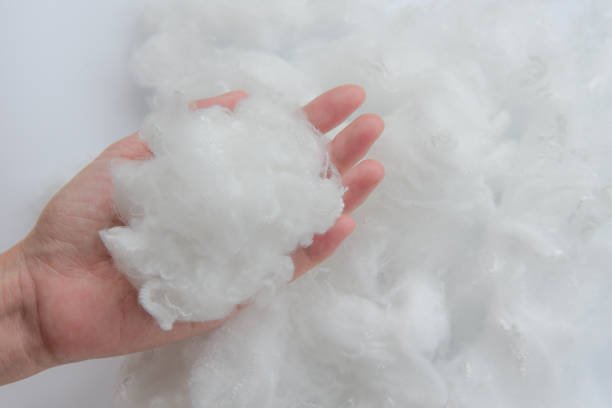Contents
Introduction to Polyester vs Cotton fiber:
As winter approaches and the need for warmth and protection from the elements becomes paramount, the choice of materials for shelter becomes crucial. Among the myriad of options, polyester and cotton fibers stand out as two popular choices for constructing winter shelters. Each material offers unique characteristics that can significantly impact the comfort and functionality of the shelter in cold conditions. In this introduction, we delve into the debate between polyester and cotton fibers, seeking to determine which one holds the edge in providing effective shelter during the winter months. By examining their insulating properties, durability, moisture resistance, and overall suitability for winter conditions, we aim to provide valuable insights into the optimal choice for constructing winter seasons shelters. Whether it’s the synthetic resilience of polyester or the natural comfort of cotton, understanding the merits of each fiber is essential for ensuring the warmth and protection needed to weather the winter season.

What is polyester Fiber
Polyester fiber is a synthetic material made from polymers derived from petroleum. It is known for its durability, strength, and resistance to stretching, shrinking, and wrinkles. Polyester fibers are manufactured through a process called polymerization, where chemical reactions create long chains of polymers that are then spun into fibers.
One of the key characteristics of polyester fiber is its hydrophobic nature, meaning it repels water. This makes it resistant to moisture, making it suitable for outdoor applications such as in tents, jackets, and other outdoor gear. Additionally, polyester is often used in clothing for its quick-drying properties, making it ideal for sportswear and activewear. Polyester fiber also offers excellent insulation properties, trapping heat effectively. This makes it a popular choice for cold-weather clothing and bedding, providing warmth and comfort in chilly conditions. Furthermore, polyester is resistant to mildew, mold, and insects, adding to its durability and longevity.
Overall, polyester fiber is valued for its durability, water resistance, quick-drying properties, and insulation capabilities, making it a versatile material used in a wide range of applications, from clothing and bedding to outdoor gear and upholstery.

What is Cotton Fiber
Cotton fiber is a natural fiber derived from the seed pods of the cotton plant. It is one of the most widely used fibers in the textile industry due to its softness, breathability, and versatility. Cotton fiber is also known for its versatility. It can be easily dyed and woven into various types of fabrics, ranging from lightweight voile and muslin to heavier denim and canvas. This versatility makes cotton suitable for a wide range of applications, from casual clothing to home textiles.
One of the key characteristics of cotton fiber is its breathability. Cotton allows air to circulate freely through the fabric, making it comfortable to wear in warm weather. This breathability also helps wick moisture away from the body, keeping the skin dry and cool. Cotton is prized for its softness against the skin. It has a smooth texture that feels gentle and comfortable, making it a popular choice for clothing, bedding, and towels. Additionally, cotton fibers are naturally hypoallergenic, making them suitable for people with sensitive skin.
In summary, cotton fiber is valued for its breathability, softness, absorbency, and versatility. It is a natural and sustainable material that is widely used in the textile industry for its comfort and practicality.

Differences between polyester vs Cotton Fiber
Polyester and cotton fiber shelter are two popular fabrics with distinct differences that influence their characteristics and uses.
Polyester:
-
- Synthetic Origin: Polyester is a man-made fiber derived from petroleum-based substances.
- Durability: It is known for its strength and resilience, making it resistant to stretching, shrinking, and wrinkles.
- Moisture Resistance: Polyester is hydrophobic, meaning it repels water, making it suitable for outdoor use and water-resistant clothing.
- Insulation: It offers excellent thermal insulation, trapping heat effectively, which is advantageous in cold climates.
- Quick Drying: Polyester dries quickly, making it ideal for activewear and outdoor gear.
Cotton:
-
- Natural Fiber: Cotton comes from the cotton plant’s seed pods, making it a natural and biodegradable material.
- Breathability: Cotton is highly breathable, allowing air to circulate and moisture to evaporate, which keeps the body cool and comfortable in warm weather.
- Softness: It is prized for its soft texture against the skin, making it a popular choice for clothing, bedding, and towels.
- Absorbency: Cotton absorbs moisture well, although it can become heavy and damp when wet, taking longer to dry compared to polyester.
- Versatility: Cotton is versatile and can be used in various applications, from clothing to home textiles.
In summary, polyester offers durability, moisture resistance, and quick drying properties, making it suitable for outdoor and performance-oriented uses. On the other hand, cotton is prized for its breathability, softness, and versatility, making it ideal for comfortable everyday wear and home textiles. The choice between polyester and cotton depends on factors such as intended use, climate, and personal preferences.
Polyester or Cotton fiber which is better for Shelter in winter
In winter, when considering shelter materials, both polyester and cotton fiber have distinct advantages to offer. Polyester is a synthetic fiber known for its exceptional insulation properties, which help retain body heat and keep you warm even in extremely cold temperatures. Additionally, polyester is highly durable, making it suitable for prolonged use and frequent washing without losing its effectiveness. Its water-resistant nature further enhances its suitability for winter shelter, as it helps keep moisture away from the body, preventing heat loss due to wetness.
On the other hand, cotton fiber, a natural material derived from the cotton plant, boasts excellent breathability, allowing air to circulate freely through the fabric. This breathability helps regulate body temperature, preventing overheating during physical activities in winter. Moreover, cotton is renowned for its comfort and softness against the skin, providing a cozy feel that many individuals prefer during colder months. Additionally, cotton has the ability to absorb moisture, making it suitable for wicking sweat away from the body and keeping you dry and comfortable during outdoor winter activities.
Ultimately, the choice between polyester and cotton fiber for winter shelter depends on various factors, including personal preferences, specific needs, and environmental considerations. While polyester offers superior insulation and durability, cotton excels in breathability, comfort, and moisture absorption. By understanding the unique properties of each material, individuals can make informed decisions to ensure warmth and comfort during the winter season.
Also Read: Nylon vs Polyester tents
Conclusion
In conclusion, when considering the suitability of polyester versus cotton fibers for shelter in winter, both materials possess distinct advantages and disadvantages. Polyester offers excellent insulating properties, retaining heat effectively and providing warmth in colder temperatures. Additionally, it is highly durable, resistant to moisture, and can dry quickly, making it ideal for withstanding winter conditions such as snow and sleet. However, it may not breathe as well as cotton, potentially leading to moisture buildup and discomfort if worn for extended periods.
On the other hand, cotton fibers have natural breathability, allowing air to circulate and moisture to evaporate, which can help regulate body temperature and prevent overheating. Cotton is also soft and comfortable against the skin, providing a cozy feel in winter shelters. However, it tends to absorb moisture, making it less suitable for prolonged exposure to wet or snowy conditions.
Ultimately, the choice between polyester and cotton fibers for winter shelter depends on various factors such as climate, intended use, and personal preferences. For extreme cold and wet environments,polyester may be preferred for its superior insulation and moisture resistance. However, in milder climates or for individuals who prioritize breathability and comfort, cotton could be the better option. It’s essential to weigh these factors carefully to determine which material best suits the specific needs of the winter shelter.


